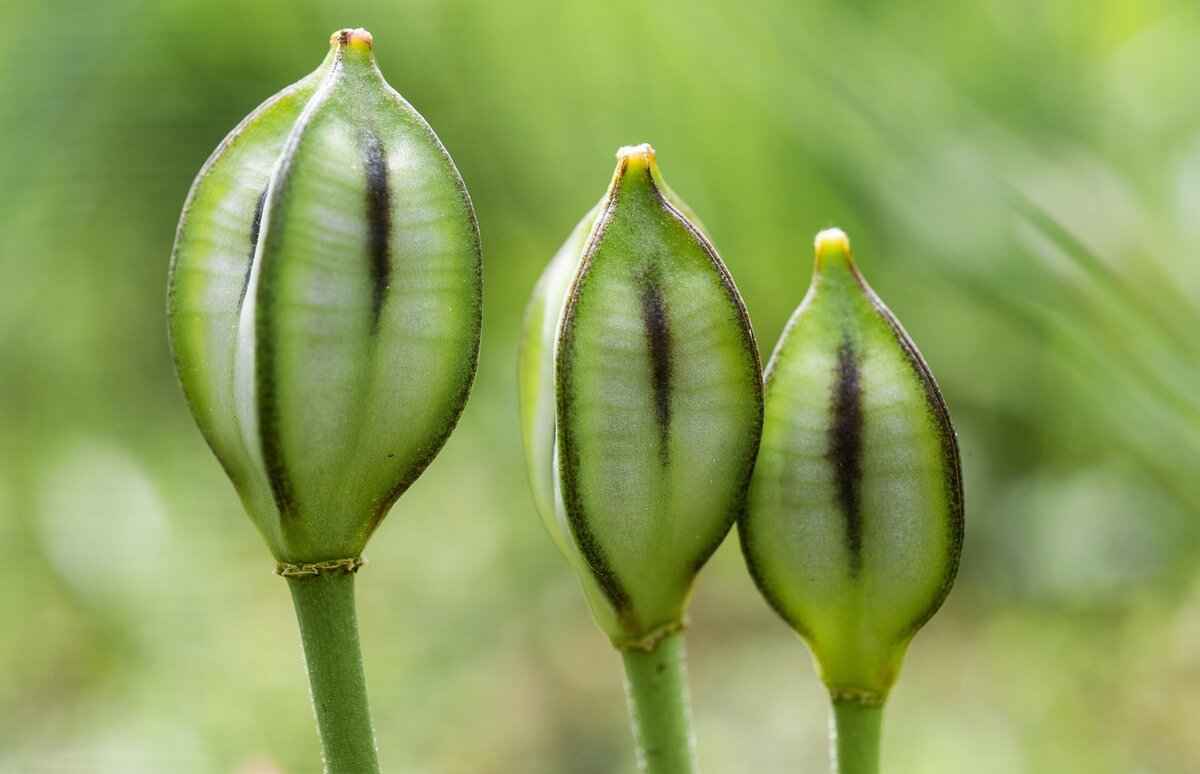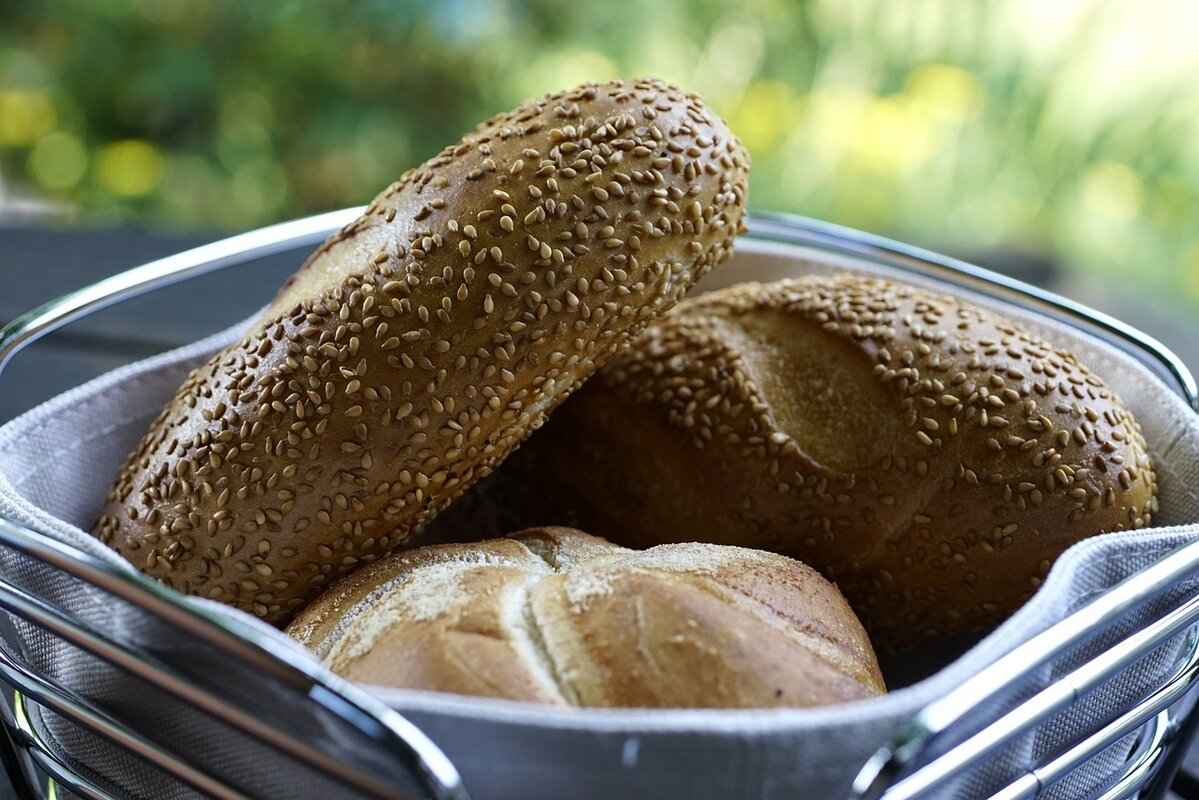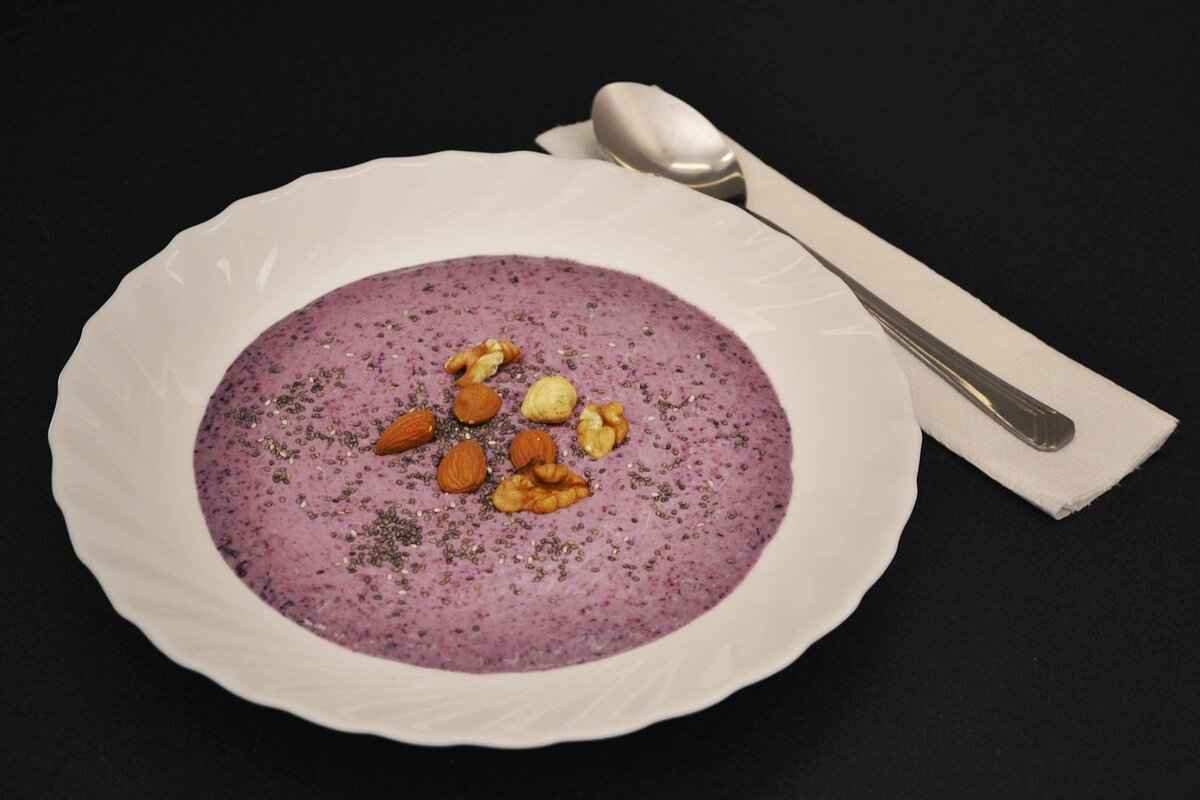This article delves into the carbohydrate content of chia seeds, highlighting their nutritional benefits and evaluating their compatibility with a ketogenic diet. This comprehensive guide is designed for health-conscious individuals seeking to enhance their dietary choices.
What Are Chia Seeds?
Chia seeds are small, nutrient-dense seeds obtained from the Salvia hispanica plant. They have gained popularity due to their impressive health benefits and versatility in various culinary applications. Rich in fiber, protein, and omega-3 fatty acids, chia seeds are a powerhouse of nutrition.
How Many Carbs Are in Chia Seeds?
Chia seeds contain approximately 12 grams of carbohydrates per ounce. However, their high fiber content, which accounts for around 10 grams, significantly reduces the net carbs, making them an appealing option for those following low-carb diets.
Understanding Net Carbs: What Does It Mean?
Net carbs are calculated by subtracting fiber and certain sugar alcohols from the total carbohydrates. For chia seeds, with their substantial fiber content, the net carbs become very low, making them suitable for ketogenic diets.
Calculating Net Carbs in Chia Seeds
To find the net carbs in chia seeds, simply subtract the fiber content from the total carbohydrates. For example, with 12 grams of carbs and 10 grams of fiber, the net carbs amount to just 2 grams.
Why Net Carbs Matter for Keto Dieters
Keto dieters focus on net carbs to maintain ketosis, a metabolic state where the body burns fat for energy instead of carbohydrates. Understanding net carbs is crucial for effective meal planning and achieving dietary goals.
Are Chia Seeds Keto-Friendly?
Yes, chia seeds are considered keto-friendly due to their low net carb content and high fiber levels, which promote satiety and support digestive health while adhering to a ketogenic lifestyle.
Health Benefits of Chia Seeds
Chia seeds offer numerous health benefits, including:
- Improved heart health: Rich in omega-3 fatty acids, chia seeds can help lower cholesterol levels and reduce inflammation.
- Enhanced digestive function: The high fiber content promotes regular bowel movements and overall gut health.
- Support for weight management: Chia seeds can help individuals feel full, which may lead to reduced calorie intake.
Chia Seeds and Heart Health
Chia seeds are an excellent source of omega-3 fatty acids, which are known to contribute to cardiovascular health by lowering cholesterol levels and decreasing inflammation throughout the body.
Chia Seeds for Weight Management
The fiber in chia seeds absorbs water and expands in the stomach, promoting a feeling of fullness. This can be particularly beneficial for individuals looking to manage their weight effectively.
How to Incorporate Chia Seeds into Your Diet
There are numerous ways to add chia seeds to your meals, such as:
- Smoothies
- Puddings
- Salads
- Baked goods
These methods enhance both flavor and nutrition without significantly increasing carbohydrate intake.
Chia Seed Recipes for Keto Dieters
Some popular keto-friendly recipes featuring chia seeds include:
- Chia pudding made with unsweetened almond milk
- Keto smoothies blended with spinach and avocado
- Using chia seeds as an egg substitute in baking
Tips for Storing Chia Seeds
To maintain freshness, store chia seeds in a cool, dry place in an airtight container. Proper storage helps preserve their nutritional quality and flavor over time.

What Are Chia Seeds?
Chia seeds are increasingly recognized as a superfood, originating from the Salvia hispanica plant, which is native to Mexico and Guatemala. These tiny seeds are not only versatile but also packed with essential nutrients, making them a staple in various diets across the globe. Their popularity has surged due to their impressive health benefits, which cater to a wide range of dietary preferences, including vegan, gluten-free, and ketogenic diets.
Chia seeds are a powerhouse of nutrition. They contain:
- High Fiber Content: Approximately 10 grams of fiber per ounce, aiding in digestion and promoting a feeling of fullness.
- Protein: About 4 grams of protein per ounce, making them an excellent source for those looking to increase their protein intake.
- Omega-3 Fatty Acids: Chia seeds are one of the richest plant sources of omega-3s, which are vital for heart health.
- Minerals: They also provide essential minerals such as calcium, magnesium, and phosphorus.
The health benefits of chia seeds extend beyond their nutritional profile. Here are some key advantages:
- Heart Health: The omega-3 fatty acids in chia seeds can help lower cholesterol levels and reduce the risk of heart disease.
- Weight Management: Their high fiber content can lead to increased satiety, helping individuals manage their weight effectively.
- Digestive Health: Chia seeds promote regular bowel movements and support overall gut health.
Incorporating chia seeds into your meals is simple and enjoyable. Here are some popular ways to use them:
- Chia Pudding: Mix chia seeds with almond milk and let them sit overnight for a delicious breakfast or snack.
- Smoothies: Add a tablespoon of chia seeds to your smoothies for an extra nutrient boost.
- Baking: Use chia seeds as an egg substitute in vegan baking by mixing them with water.
- Salads: Sprinkle chia seeds on salads for added crunch and nutrition.
Generally, chia seeds are safe for most people when consumed in moderation. However, those with certain health conditions, such as esophageal problems, should be cautious, as chia seeds can absorb water and expand. It’s advisable to soak them before consumption to prevent any digestive issues.
Chia seeds are widely available in health food stores, supermarkets, and online. When purchasing, look for organic options to ensure you are getting the highest quality seeds without additives.
Incorporating chia seeds into your diet can offer a multitude of health benefits while enhancing the nutritional value of your meals. Their versatility makes them an excellent addition to various dishes, and with their impressive nutrient profile, they can support a healthy lifestyle. Whether you are looking to improve your heart health, manage your weight, or simply add more nutrients to your diet, chia seeds are a fantastic choice.

How Many Carbs Are in Chia Seeds?
Chia seeds have gained immense popularity in recent years, particularly among health enthusiasts and those following low-carb diets. One of the most frequently asked questions regarding these tiny powerhouses is, “How many carbs are in chia seeds?” Understanding their carbohydrate content is essential for those who are monitoring their intake, especially for individuals adhering to a ketogenic or low-carb lifestyle.
Chia seeds contain approximately 12 grams of carbohydrates per ounce (about 28 grams). However, the real story lies in their remarkable fiber content, which is around 10 grams per ounce. This high fiber level means that the net carbohydrates—those that impact blood sugar levels—are significantly reduced. Thus, when considering the net carbs, chia seeds offer just about 2 grams of net carbs per ounce, making them an ideal choice for those on low-carb diets.
The term net carbs refers to the total carbohydrates in a food item minus its fiber content. This calculation is crucial, especially for individuals on ketogenic diets, as it helps in determining how many carbohydrates can be consumed while still maintaining a state of ketosis. For chia seeds, with their high fiber content, the low net carb count allows for greater flexibility in meal planning.
To calculate the net carbs in chia seeds, simply subtract the fiber content from the total carbohydrates. For example, if chia seeds have 12 grams of total carbohydrates and 10 grams of fiber, the net carbs would be:
12g (total carbs) - 10g (fiber) 2g (net carbs)
This calculation is essential for anyone looking to manage their carbohydrate intake effectively.
For those following a keto diet, understanding net carbs is vital for maintaining ketosis, a metabolic state where the body burns fat for energy instead of carbohydrates. By focusing on net carbs, individuals can better plan their meals without exceeding their carbohydrate limits, thus supporting their weight loss goals and overall health.
Absolutely! Chia seeds are considered keto-friendly due to their low net carb content and high fiber, which promotes a feeling of fullness and aids in digestion. Incorporating chia seeds into a ketogenic diet can help individuals feel satisfied while keeping their carbohydrate intake in check.
Beyond their carbohydrate content, chia seeds offer numerous health benefits. They are rich in omega-3 fatty acids, which are essential for heart health, and they provide a good source of protein and antioxidants. Additionally, the high fiber content supports digestive health and may assist in weight management by promoting satiety.
There are various ways to include chia seeds in your meals. They can be added to:
- Smoothies
- Puddings
- Salads
- Baked goods
These tiny seeds not only enhance the nutritional value of your meals but also add a delightful crunch.
For those looking for keto-friendly recipes featuring chia seeds, consider trying:
- Chia pudding made with almond milk and topped with berries
- Chia smoothies blended with spinach and avocado
- Using chia seeds as an egg substitute in baking
To maintain the freshness and nutritional quality of chia seeds, store them in a cool, dry place in an airtight container. Proper storage helps preserve their flavor and health benefits over time.

Understanding Net Carbs: What Does It Mean?
When it comes to understanding carbohydrates, especially for those following low-carb or ketogenic diets, the concept of net carbs is crucial. Net carbs represent the total carbohydrates in a food item, minus the fiber content and certain sugar alcohols that do not significantly impact blood sugar levels. This calculation is essential for individuals aiming to manage their carbohydrate intake effectively.
Chia seeds, known for their impressive nutritional profile, are a perfect example of how net carbs can be calculated and understood. These tiny seeds pack a powerful punch, offering a wealth of health benefits while remaining low in net carbs. Let’s dive deeper into what net carbs mean and how they apply to chia seeds.
Net carbs are defined as the total carbohydrates in a food minus the fiber and specific sugar alcohols such as erythritol. Since fiber is not digested by the body, it does not contribute to blood sugar spikes, making it an important factor in the calculation of net carbs. For those on a ketogenic diet, where maintaining a state of ketosis is essential, understanding net carbs is vital for meal planning and overall success.
To determine the net carbs in chia seeds, you need to know their total carbohydrate content and the amount of fiber they provide. Chia seeds contain approximately 12 grams of carbohydrates per ounce, but they also boast a remarkable 10 grams of fiber in the same serving. This means that the net carbs in chia seeds are only about 2 grams per ounce, making them an excellent choice for those looking to minimize their carb intake.
For individuals following a ketogenic diet, the primary goal is to enter and maintain a state of ketosis, where the body burns fat for fuel instead of carbohydrates. This is achieved by significantly reducing carbohydrate intake and focusing on foods that are low in net carbs. By understanding and calculating net carbs, keto dieters can make informed food choices that align with their dietary goals, ensuring they stay within their carb limits.
Given their low net carb content, chia seeds are a fantastic addition to a ketogenic diet. Not only do they provide essential nutrients such as protein, omega-3 fatty acids, and antioxidants, but their high fiber content also promotes feelings of fullness and aids in digestive health. This combination makes chia seeds a versatile ingredient that can be easily incorporated into various meals and snacks.
- Chia Pudding: Mix chia seeds with almond milk and let them sit overnight for a delicious, low-carb breakfast.
- Smoothies: Add chia seeds to your favorite smoothie recipe for an extra nutritional boost.
- Baking: Use chia seeds as an egg substitute in baking to enhance texture and nutrition.
- Salads: Sprinkle chia seeds on salads for added crunch and health benefits.
Understanding net carbs is essential for anyone looking to maintain a low-carb lifestyle, particularly those on ketogenic diets. Chia seeds exemplify how a food can be both nutritious and low in net carbs, making them a valuable addition to any health-conscious diet. By incorporating chia seeds into your meals, you can enjoy their numerous health benefits while keeping your carbohydrate intake in check.
Calculating Net Carbs in Chia Seeds
When it comes to understanding the nutritional profile of chia seeds, one crucial aspect to consider is the calculation of net carbs. This is particularly important for those following a low-carb or ketogenic diet. Knowing how to accurately calculate net carbs can help you make informed dietary choices.
Net carbs are defined as the total carbohydrates in a food item minus the fiber content. This is significant because fiber is not digested by the body and does not raise blood sugar levels, making it less impactful for those monitoring their carbohydrate intake. For chia seeds, the fiber content is notably high, which is why understanding net carbs is essential for anyone aiming to maintain a state of ketosis.
To determine the net carbs in chia seeds, follow this simple formula:
Net Carbs Total Carbohydrates - Fiber
For example, if chia seeds contain 12 grams of total carbohydrates and 10 grams of fiber, the calculation would be as follows:
- Total Carbohydrates: 12 grams
- Fiber: 10 grams
- Net Carbs: 12 – 10 2 grams
This means that in a typical serving of chia seeds, you are only consuming 2 grams of net carbs, making them an excellent choice for those on a keto diet.
Given their low net carb content, chia seeds are not only keto-friendly but also provide a host of other health benefits. They are rich in omega-3 fatty acids, protein, and various essential nutrients, making them a nutrient-dense addition to any meal.
There are numerous ways to include chia seeds in your daily meals. Here are a few popular methods:
- Add them to your smoothies for a nutrient boost.
- Use them to create chia pudding by soaking them in milk or a milk alternative.
- Incorporate them into baked goods as a substitute for eggs.
- Sprinkle them on salads or yogurt for added crunch and nutrition.
Understanding how to calculate net carbs in chia seeds is essential for those on a low-carb or ketogenic diet. With their low net carb content and high nutritional value, chia seeds can be a versatile and beneficial addition to your meals. By incorporating them into your diet, you can enjoy their health benefits while keeping your carbohydrate intake in check.
Why Net Carbs Matter for Keto Dieters
The ketogenic diet has gained immense popularity for its potential to promote weight loss and improve overall health. A key aspect of this diet is the focus on net carbs, which plays a crucial role in maintaining a state of ketosis. Understanding why net carbs matter can greatly enhance the effectiveness of a keto diet.
Net carbs are calculated by taking the total carbohydrates in a food item and subtracting the fiber content. This is important because fiber is not digested by the body and does not raise blood sugar levels. For example, if a food item contains 15 grams of carbohydrates and 10 grams of fiber, the net carbs would be just 5 grams. This calculation is essential for keto dieters who aim to keep their carbohydrate intake low.
For those following a ketogenic diet, the goal is to enter and maintain ketosis, a metabolic state where the body burns fat for fuel instead of carbohydrates. Consuming too many total carbs can hinder this process. By focusing on net carbs, individuals can enjoy a wider variety of foods while still adhering to their dietary restrictions.
When the body is in ketosis, it relies on ketones produced from fat breakdown for energy. If carbohydrate intake is too high, the body will revert to using glucose as its primary energy source, effectively halting ketosis. Therefore, tracking net carbs is vital for keto dieters to ensure they remain in this fat-burning state.
Understanding net carbs is essential for effective meal planning. Here are some strategies:
- Read Nutrition Labels: Always check the nutrition facts for total carbohydrates and fiber content.
- Incorporate Low-Carb Foods: Focus on foods naturally low in carbohydrates, such as leafy greens, avocados, and nuts.
- Use Apps: Consider using meal tracking apps to easily calculate net carbs and keep track of your intake.
Many people misunderstand the concept of net carbs, often thinking that all carbohydrates are created equal. However, not all carbs affect the body in the same way. For example, foods high in fiber, like chia seeds and leafy greens, have minimal impact on blood sugar levels and are therefore more suitable for a ketogenic diet.
Here are some practical tips to manage net carb intake effectively:
1. Start by calculating your daily carb limit based on your dietary goals.2. Use a food scale to measure portions accurately.3. Experiment with low-carb recipes to discover new meal options.4. Stay hydrated and consider electrolyte supplementation, as a low-carb diet can lead to a quick loss of water weight.
In summary, understanding net carbs is essential for anyone following a ketogenic diet. By focusing on the carbs that truly impact the body, individuals can maintain ketosis and enjoy the numerous benefits associated with this dietary approach. With careful meal planning and a clear understanding of net carbs, achieving and sustaining a ketogenic lifestyle becomes much more manageable.

Are Chia Seeds Keto-Friendly?
When considering a ketogenic diet, many individuals seek out foods that will not only fit within their carb limits but also provide substantial health benefits. One such food that has gained popularity in the keto community is chia seeds. Let’s explore the reasons why chia seeds are deemed keto-friendly and how they can be effectively incorporated into your diet.
Chia seeds are an excellent source of nutrients while being low in net carbohydrates. With approximately 12 grams of carbohydrates per ounce, they might initially seem unsuitable for a low-carb diet. However, the key lies in their remarkable fiber content, which accounts for about 10 grams per ounce. This results in a net carb count of only 2 grams, making them a viable option for those on a ketogenic regimen.
Understanding net carbs is crucial for anyone following a keto diet. Net carbs are calculated by subtracting fiber from the total carbohydrate count. This is because fiber does not raise blood sugar levels and is not digested in the same way as other carbohydrates. As such, chia seeds allow keto dieters to enjoy a nutrient-rich food without exceeding their carb limits.
In addition to being low in net carbs, chia seeds offer a multitude of health benefits:
- Rich in Omega-3 Fatty Acids: These essential fats can help reduce inflammation and improve heart health.
- High in Fiber: This promotes digestive health and can aid in achieving a feeling of fullness, which is beneficial for weight management.
- Protein Source: Chia seeds contain a decent amount of protein, which is essential for muscle maintenance and overall health.
There are numerous ways to enjoy chia seeds without sacrificing your ketogenic goals:
- Chia Pudding: Mix chia seeds with almond milk and let it sit overnight for a delicious breakfast option.
- Smoothies: Add a tablespoon of chia seeds to your favorite keto smoothie for added texture and nutrition.
- Baking: Use chia seeds as an egg substitute in low-carb baking recipes.
To maintain their freshness and nutritional quality, store chia seeds in a cool, dry place in an airtight container. This will help preserve their flavor and health benefits over time.
In summary, chia seeds are a keto-friendly superfood that not only fits within the dietary restrictions of a ketogenic lifestyle but also offers a plethora of health benefits. Their low net carb content, combined with high fiber and nutrient density, makes them an ideal choice for anyone looking to enhance their diet while maintaining ketosis. By incorporating chia seeds into various meals and snacks, you can enjoy their health benefits while staying true to your keto goals.

Health Benefits of Chia Seeds
Chia seeds have gained popularity in recent years due to their impressive nutritional profile and numerous health benefits. These tiny seeds, derived from the Salvia hispanica plant, are packed with essential nutrients, making them a valuable addition to any diet. This article explores the , emphasizing their role in promoting heart health, aiding digestion, and supporting weight management.
- Rich in Nutrients: Chia seeds are a powerhouse of nutrients, providing a rich source of omega-3 fatty acids, fiber, protein, and various essential minerals such as calcium, magnesium, and phosphorus.
- Heart Health: The high content of omega-3 fatty acids in chia seeds can help lower cholesterol levels and reduce inflammation, which are crucial for maintaining a healthy heart.
- Digestive Health: Chia seeds are an excellent source of dietary fiber, which aids in digestion by promoting regular bowel movements and preventing constipation.
- Weight Management: The fiber in chia seeds absorbs water and expands in the stomach, leading to a feeling of fullness. This may help individuals control their appetite and reduce overall calorie intake.
- Bone Health: With their impressive mineral content, chia seeds contribute to bone health, providing vital nutrients like calcium and magnesium necessary for maintaining strong bones.
The omega-3 fatty acids found in chia seeds are known for their heart-protective properties. They can help reduce triglycerides, lower blood pressure, and decrease the risk of heart disease. Additionally, the antioxidants present in chia seeds combat oxidative stress, further enhancing cardiovascular health.
The high fiber content in chia seeds plays a significant role in digestive health. Fiber adds bulk to the stool, making it easier to pass through the digestive tract. This can help prevent constipation and promote a healthy gut microbiome, which is essential for overall health.
Chia seeds are often recommended for those looking to manage their weight. Their ability to absorb liquid and expand in the stomach helps individuals feel fuller for longer periods, reducing the likelihood of overeating. Incorporating chia seeds into meals can be a simple yet effective strategy for weight control.
There are countless ways to enjoy chia seeds and reap their health benefits. Here are some practical suggestions:
- Add chia seeds to smoothies for a nutrient boost.
- Mix them into yogurt or oatmeal for added texture and nutrition.
- Use chia seeds in baking as a substitute for eggs in vegan recipes.
- Prepare chia pudding by soaking seeds in milk or a dairy-free alternative, sweetened with fruits or honey.
While chia seeds are generally safe for most people, it’s essential to consume them in moderation. Due to their high fiber content, excessive intake may lead to digestive discomfort. It’s advisable to start with a small amount and gradually increase your intake to allow your body to adjust.
In conclusion, chia seeds are a versatile and nutritious addition to any diet, offering a wide range of health benefits. From promoting heart health to aiding digestion and supporting weight management, these tiny seeds pack a powerful punch. Incorporating chia seeds into your meals can enhance your overall well-being and contribute to a healthier lifestyle.
Chia Seeds and Heart Health
Chia seeds are not just a trendy superfood; they are a powerhouse of nutrition that offers numerous health benefits, particularly for heart health. These tiny seeds, derived from the Salvia hispanica plant, are rich in essential nutrients that can significantly impact cardiovascular well-being.
Rich in omega-3 fatty acids, chia seeds can help lower cholesterol levels and reduce inflammation. This is crucial because high cholesterol and chronic inflammation are major risk factors for heart disease. Incorporating chia seeds into your diet can lead to improved lipid profiles, which is vital for maintaining a healthy heart.
Omega-3 fatty acids are a type of polyunsaturated fat that plays a crucial role in heart health. They are known to:
- Reduce triglycerides
- Lower blood pressure
- Decrease the risk of arrhythmias
- Reduce plaque buildup in arteries
Chia seeds are an excellent plant-based source of omega-3s, specifically alpha-linolenic acid (ALA), which the body can convert into the more active forms found in fish oil, such as EPA and DHA.
The soluble fiber in chia seeds helps in binding bile acids in the digestive system. When bile acids are excreted, the body must use cholesterol to produce more bile, thereby reducing overall cholesterol levels. This natural process can lead to improved cholesterol profiles and a reduced risk of heart disease.
Chronic inflammation is another significant contributor to heart disease. The antioxidants present in chia seeds, including flavonoids and phenolic acids, can help combat oxidative stress and inflammation in the body. By incorporating chia seeds into your diet, you may experience a reduction in inflammatory markers, promoting better heart health.
Incorporating chia seeds into your meals is easy and versatile. Here are some practical ways to enjoy their health benefits:
- Chia Pudding: Mix chia seeds with your choice of milk or yogurt and let them sit overnight for a delicious breakfast.
- Smoothies: Add a tablespoon of chia seeds to your favorite smoothie for an extra nutrient boost.
- Baked Goods: Use chia seeds as an egg substitute in baking, or sprinkle them on top of muffins and breads.
- Salads: Toss chia seeds into salads for added crunch and nutrition.
While chia seeds are generally safe for most people, it’s essential to consume them in moderation. Due to their high fiber content, excessive intake may lead to digestive issues such as bloating or gas. Always ensure you drink plenty of water when consuming chia seeds to aid digestion.
In conclusion, chia seeds are a heart-healthy addition to your diet. Their rich content of omega-3 fatty acids, fiber, and antioxidants makes them a valuable food for those looking to improve their cardiovascular health. By incorporating chia seeds into your meals, you can take a proactive step toward enhancing your overall well-being.
Chia Seeds for Weight Management
When it comes to weight management, chia seeds have gained popularity as a powerful ally. These tiny seeds are packed with nutritional benefits that can support individuals on their weight loss journey. One of the key factors contributing to their effectiveness is their remarkably high fiber content.
Chia seeds contain approximately 10 grams of fiber per ounce, which is significant compared to many other foods. This fiber plays a crucial role in promoting a feeling of fullness, also known as satiation. When consumed, chia seeds absorb water and expand in the stomach, creating a gel-like substance that can help curb hunger pangs. As a result, individuals may find themselves eating less overall, leading to a reduction in calorie intake.
The feeling of fullness that chia seeds provide can be particularly beneficial for those trying to lose weight. Many people struggle with cravings and the temptation to snack between meals. By incorporating chia seeds into their diet, individuals may experience fewer cravings, making it easier to stick to their weight loss goals.
| Benefits of Chia Seeds for Weight Management | Details |
|---|---|
| High Fiber Content | Promotes a feeling of fullness, reducing overall calorie intake. |
| Low Caloric Density | Provides essential nutrients without adding excessive calories. |
| Versatile Ingredient | Can be easily added to various dishes, enhancing nutrition. |
Furthermore, chia seeds are low in caloric density, meaning they provide a wealth of nutrients without packing on the calories. This quality makes them an excellent choice for those who want to feel satisfied after meals while maintaining a calorie deficit for weight loss.
In addition to promoting fullness, chia seeds are also rich in omega-3 fatty acids, protein, and various vitamins and minerals. These nutrients not only support overall health but also contribute to a balanced diet, which is essential for effective weight management.
To incorporate chia seeds into your diet, consider adding them to smoothies, yogurt, or oatmeal. They can also be used to create delicious chia puddings or as a thickening agent in soups and sauces. The versatility of chia seeds makes them an easy addition to meals, ensuring that you can enjoy their benefits without hassle.
It’s important to note that while chia seeds can aid in weight management, they should be part of a balanced diet and healthy lifestyle. Regular physical activity and mindful eating practices are also crucial components of successful weight loss.
In summary, chia seeds are an excellent tool for those looking to manage their weight. Their high fiber content promotes a feeling of fullness, helping to reduce overall calorie intake. By incorporating these tiny yet powerful seeds into your meals, you can enjoy their numerous health benefits while working towards your weight management goals.

How to Incorporate Chia Seeds into Your Diet
Chia seeds have gained immense popularity in recent years due to their versatility and impressive nutritional profile. These tiny seeds can be easily incorporated into a variety of meals, making them an excellent addition to any diet. Below are some practical ways to include chia seeds in your meals, enhancing both flavor and nutrition without adding significant carbs.
- Smoothies: Adding chia seeds to your smoothies not only boosts their nutritional value but also gives them a delightful texture. Simply blend your favorite fruits, vegetables, and a tablespoon of chia seeds for a filling breakfast or snack.
- Puddings: Chia seed pudding is a popular dish that is both easy to make and customizable. Mix chia seeds with your choice of milk (dairy or plant-based) and let them soak overnight. Add sweeteners, fruits, or nuts for added flavor.
- Salads: Sprinkle chia seeds on top of salads for an extra crunch. Their nutty flavor complements a variety of dressings and ingredients, making your salads more satisfying.
- Baked Goods: Incorporate chia seeds into baked goods like muffins, bread, or cookies. They can serve as a healthy substitute for eggs when mixed with water, making them a perfect option for vegan recipes.
- Soups and Stews: Adding chia seeds to soups and stews can help thicken the consistency while enriching the dish with nutrients. Just stir them in during the last few minutes of cooking.
- Energy Bars: Create homemade energy bars by mixing oats, nut butter, honey, and chia seeds. This combination makes for a nutritious snack that is perfect for on-the-go energy.
Chia seeds are not only low in carbs but also high in fiber, protein, and omega-3 fatty acids, making them a powerhouse for health enthusiasts. Their high fiber content promotes digestive health and keeps you feeling full longer, which is especially beneficial for those managing their weight.
Moreover, chia seeds are rich in antioxidants, which help combat oxidative stress in the body. This means that incorporating them into your meals can contribute to overall health and well-being.
- Always soak chia seeds before consuming them to maximize their nutritional benefits and improve digestibility.- Use a ratio of 1:4 (chia seeds to liquid) when making puddings or smoothies.- Experiment with different flavors by adding spices or extracts like vanilla or cinnamon.
To keep your chia seeds fresh and potent, store them in an airtight container in a cool, dry place. This will help preserve their nutritional quality and prevent them from going rancid. Proper storage is key to enjoying their benefits for longer periods.
Incorporating chia seeds into your diet can be both simple and enjoyable. With their versatility and numerous health benefits, they serve as an excellent ingredient for enhancing your meals without compromising your dietary goals. Whether you’re looking to add more nutrition to your smoothies or create delicious puddings, chia seeds are an excellent choice for anyone looking to improve their overall health.
Chia Seed Recipes for Keto Dieters
are a fantastic way to incorporate these nutrient-dense seeds into your meals while adhering to a low-carb lifestyle. Chia seeds are not only versatile but also provide an array of health benefits, making them a popular choice among health-conscious individuals. Here are some delicious and easy recipes that highlight the use of chia seeds in a ketogenic diet.
Chia pudding is a simple yet satisfying dessert or breakfast option. To make a basic chia pudding, combine:
- 1/4 cup chia seeds
- 1 cup unsweetened almond milk
- 1-2 tablespoons of your favorite low-carb sweetener (like stevia or erythritol)
- 1/2 teaspoon vanilla extract
Mix the ingredients in a bowl or jar and let it sit in the refrigerator for at least 4 hours or overnight. The chia seeds will absorb the liquid and create a pudding-like consistency. Top with berries or nuts for added flavor and texture.
For a quick breakfast or snack, try a chia smoothie. Blend together:
- 1 cup spinach or kale
- 1/2 avocado
- 1 tablespoon chia seeds
- 1 cup unsweetened coconut milk
- 1-2 tablespoons of low-carb sweetener (optional)
This smoothie is packed with nutrients and healthy fats, making it a perfect addition to your keto meal plan.
Chia seeds can also act as a fantastic egg substitute in baking. To replace one egg, mix:
- 1 tablespoon chia seeds
- 2.5 tablespoons water
Let the mixture sit for about 5 minutes until it forms a gel-like consistency. This mixture can be used in recipes for pancakes, muffins, or cookies, helping to keep the carb count low while still achieving the desired texture.
These energy bites are perfect for a quick snack. Combine:
- 1 cup almond flour
- 1/4 cup chia seeds
- 1/4 cup unsweetened cocoa powder
- 1/4 cup nut butter (like almond or peanut butter)
- 1-2 tablespoons low-carb sweetener
Mix all ingredients together, roll into small balls, and refrigerate. These bites are not only keto-friendly but also provide a boost of energy when you need it!
Add chia seeds to your salads for an extra crunch and nutrition boost. Simply sprinkle a tablespoon of chia seeds over your favorite salad. They can soak up some of the dressing, adding a unique texture and flavor.
Incorporating chia seeds into your keto diet is not only easy but also delicious. These recipes provide a variety of options to keep your meals exciting while maintaining a low carbohydrate intake. Experiment with these ideas and discover how chia seeds can enhance your culinary creations!
Tips for Storing Chia Seeds
Chia seeds are a nutritional powerhouse packed with essential nutrients, making them a popular choice for health enthusiasts and those following various diets, including keto. However, to fully enjoy their benefits, it is crucial to store them properly. Here are some effective tips for storing chia seeds to ensure they remain fresh and retain their nutritional quality.
- Choose the Right Container: Store chia seeds in an airtight container to prevent moisture and air from degrading their quality. Glass jars or high-quality plastic containers with tight-sealing lids work well.
- Keep Them Cool: It is essential to store chia seeds in a cool, dry place. A pantry or cupboard away from heat sources is ideal. Avoid areas near ovens or stoves that can expose them to fluctuating temperatures.
- Avoid Direct Sunlight: Exposure to light can cause chia seeds to lose their flavor and nutritional value. Store them in a dark place or use opaque containers to block out light.
- Consider Refrigeration: For extended shelf life, you may choose to store chia seeds in the refrigerator. This is particularly beneficial if you buy in bulk. Just ensure they are in a sealed container to prevent moisture absorption.
- Check Expiration Dates: Always pay attention to the expiration or best-by dates on the packaging. While properly stored chia seeds can last for years, it’s good practice to replace them as needed.
- Monitor for Freshness: Regularly check your chia seeds for any signs of spoilage, such as an off smell or changes in texture. Fresh chia seeds should have a neutral, nutty aroma.
By following these storage tips, you can ensure that your chia seeds remain fresh, flavorful, and packed with nutrients. Proper storage not only enhances their longevity but also maximizes the health benefits they offer. Whether you add them to smoothies, salads, or baked goods, knowing how to store chia seeds effectively allows you to enjoy their full potential.
Frequently Asked Questions
- Can I eat chia seeds on a keto diet?
Absolutely! Chia seeds are keto-friendly due to their low net carb content. With around 2 grams of net carbs per ounce, they can fit perfectly into your ketogenic meal plan.
- How do chia seeds help with weight management?
The high fiber content in chia seeds keeps you feeling full longer, which can help curb your appetite and reduce overall calorie intake. It’s like having a natural appetite suppressant in your pantry!
- What are some easy ways to incorporate chia seeds into my meals?
You can sprinkle them on salads, blend them into smoothies, or make delicious chia pudding. They’re super versatile and can enhance both the flavor and nutritional value of your dishes.
- How should I store chia seeds to keep them fresh?
Store your chia seeds in a cool, dry place in an airtight container. This helps maintain their freshness and nutritional quality for a longer time.
- Are there any side effects of consuming chia seeds?
Generally, chia seeds are safe for most people. However, consuming them in large quantities may lead to digestive discomfort due to their high fiber content. It’s best to start with a small amount!














